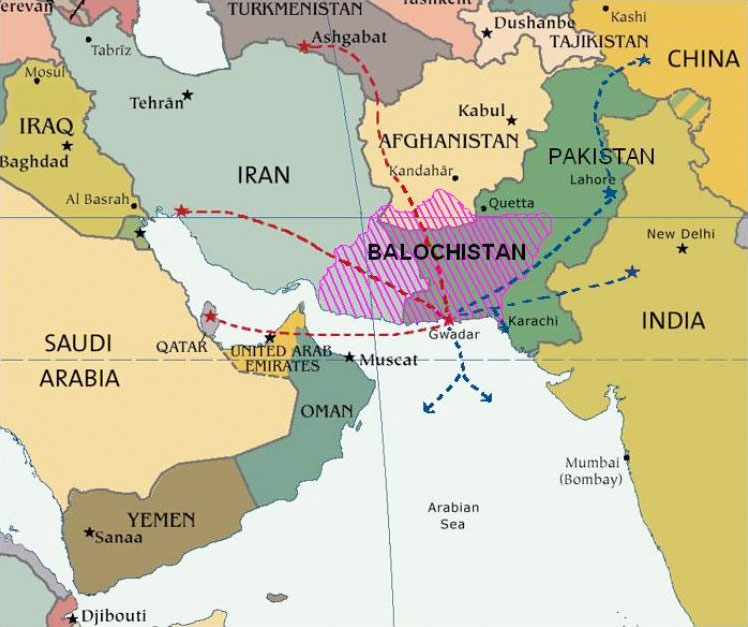Indian “Spy” in Balochistan: Evolving Iran-Pakistan-India Relations
Balochistan is located in a critical spot in the region.
On March 24, Pakistan announced that local police forces in the insurgency-ridden and restless region of Balochistan had arrested an Indian spy by the name of Kulbhushan Jadhav. Police provided a video of Jadhav’s confession as their only proof. In thevideo, Jadhav calmly confesses to being a naval officer working under orders from India’s external intelligence service, known as RAW (Research and Analysis Wing), and to instigating Baloch nationalist insurgency against Pakistan’s central government. Jadhav said that during his fourteen-year service with RAW he lived in the port city of Chabahar, Iran, while planning and executing RAW intelligence missions in Balochistan and Karachi.
The credibility of this video confession is deeply contested, and India denies that Jadhav is a current member of the Indian navy. Details of the affair remain unclear and Pakistan continues to deny India consular access to Jadhav. Not only has this development further strained Pakistan’s relations with long-term rival, India, but also with its neighbor to the west, Iran.
Historically, Iran and Pakistan have been allies. In 1947, Iran was the first to officially recognize Pakistan as an independent nation. The two countries have a history of economic and military cooperation; Iran supported Pakistan in its conflict with India and Pakistan reciprocated in supporting Iran in the Iraq-Iran war of the 1980s. Despite Pakistan’s evident discrimination toward its minority Shi’ite population (who hold a strong majority in Iran), reports demonstrate that Pakistanis are themost pro-Iran nationality in the world. However, it seems that recent developments may be straining these relations.
In the wake of Jadhav’s arrest, Director General Asma Bajwa of Pakistan’s intelligence agency, the Inter-Services Intelligence (ISI),tweeted, “There is concern that RAW is involved in Pakistan, especially in Balochistan, and sometimes it also uses the soil of our brother country Iran.” Further, Pakistani Chief of Army Staff Raheel Sharif allegedly requested of Iran to help Pakistan crack down on RAW in Balochistan.
Meanwhile, it appears that recent geopolitical developments, particularly the P5 +1 nuclear deal, have improved previously lukewarmIran-India economic cooperation. In 2014, India provided the first installment of funding for the construction of the strategically-positionedChabahar Port, which offers an efficient land-sea route through Afghanistan for oil and gas trade between Iran and India. This port would enable trade routes to entirely avoid passing through Pakistan. With India’s sanctions on Iran lifted earlier this year, oil flows more freely (and cheaply) to India.
With the removal of sanctions and the warming of India-Iran relations, one may wonder whether Pakistan’s sudden arrest of Kulbhushan Jadhav and its subsequent requests for Iran to criticize India show that Islamabad is feeling somewhat defensive of itsprimacy in Iran’s book. Nonetheless, it seems possible that this incident of tension may be overcome and relations between these South Asian neighbors may continue to improve as Iran gradually re-joins the international economic community.

